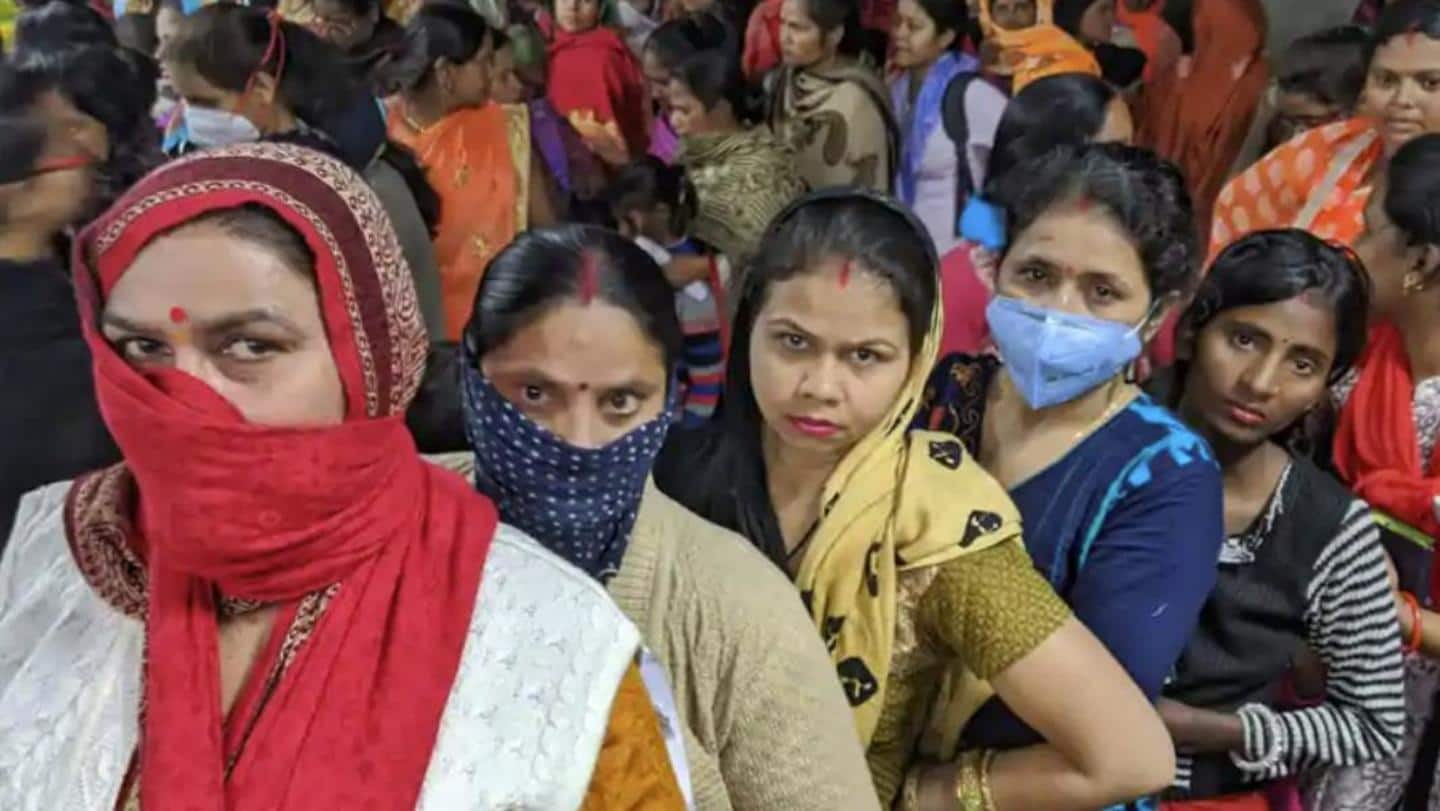
Coronavirus: Home Ministry issues fresh guidelines for surveillance, containment, caution
What's the story
The Ministry of Home Affairs on Wednesday issued fresh COVID-19 guidelines for surveillance, containment, and caution.
The Ministry noted that although the number of active infections has declined from 10 lakh in mid-September to 4.5 lakh now, some states/union territories are witnessing spikes in infections due to the recent festival season, the onset of winter, and laxity in following COVID-19 appropriate behavior.
General guidelines
States/UTs urged to promote COVID-19 appropriate behavior
To consolidate substantial gains that have been achieved in containing COVID-19 so far and fully contain the outbreak, the MHA urged state/UT governments to promote COVID-19 appropriate behavior.
Under the guidelines—valid from December 1-31—the government pushed for strict enforcement of wearing face masks, hand hygiene, and social distancing.
It suggested imposing fines on people who do not wear face masks in public and workplaces.
Information
States/UTs advised to regulate travel by buses, boats, etc.
The MHA said standard operating protocols (SOPs) issued for regulating travel in aircraft, trains, and metro rails must be strictly enforced. Further, it recommended states/UTs to issue necessary guidelines for other modes of travel, such as boats, buses, etc.
Workplaces
Here are the guidelines for workplaces
Work from home should be followed as much as possible.
Work/business hours in offices, workplaces, shops, markets, and industrial/commercial establishments should be staggered.
Provisions for thermal screening, hand-wash, and sanitizer shall be made available at all entry/exit points and common areas.
Workplaces, common places, and all points that come in human contact shall be frequently sanitized.
Social distancing must be followed at the workplace.
Information
Face masks remain compulsory; six-feet distancing to be ensured
Under national directives, face masks are mandatory in public places, workplaces, and during transport. Individuals must maintain at least a six feet distance in public. Shops shall ensure physical distancing among customers. Spitting in public places will attract fines.
Containment zones
Containment zones to be demarcated at 'micro-level'
Containment zones will be demarcated by district authorities at the "micro-level," in line with the Health Ministry's guidelines.
Strict containment will be enforced in these containment zones and only essential activities will be allowed.
There shall be no movement of people in/out of these zones, except for medical emergencies and maintaining the supply of essential goods/services.
Containment zones
Stricter rules for containment zones
The guidelines called for strict house-to-house surveillance in containment zones, along with surveillance of ILI/SARI cases, awareness on precautions, and quick isolation of patients.
Testing should be conducted as per protocol.
Contacts should be listed for all persons confirmed as COVID-19 positive. Tracking, identification, quarantining, and follow-up of contacts shall continue for 14 days (80% of contacts must be traced within 72 hours).
Restrictions
Restrictions outside containment zones:
All activities remain permitted outside containment zones. Only the following have restrictions:
International air travel, as permitted by MHA. Cinema halls/theaters with up to 50% capacity. Swimming pools open only for sportspersons' training. Exhibition halls for business-to-business purposes.
Social/sports/entertainment/cultural/educational/religious gatherings are allowed with up to 50% of hall capacity with a cap of 200 persons. State/UT governments may reduce the cap for closed spaces.
Information
Following activities to operate under SOPs previously issued
"Movement by passenger trains; air travel; metro trains; schools; higher educational institutions; hotels and restaurants; shopping malls; multiplexes and entertainment parks; yoga centers and gymnasiums; assemblies and congregations, etc.," shall continue to be regulated by SOPs previously issued by the government.
Local restrictions
States/UTs can impose curfews, not lockdowns
State/UT governments have been allowed to impose local restrictions to contain COVID-19, such as night curfew.
However, they do not have the authority to impose local lockdowns at the state/district/sub-division/city levels outside containment zones without prior consultation with the Centre.
In cities where the weekly positivity rate is above 10%, states/UTs shall consider implementing staggered office timings and other suitable measures.
Information
Vulnerable groups advised to remain indoors
Vulnerable groups such as persons above the age of 65, persons with co-morbidities, pregnant women, and children below the age of 10, are advised to stay at home, except for essential and health purposes.
Aarogya Setu
Use of Aarogya Setu encouraged in workplaces
Workplaces shall continue to ensure that Aarogya Setu app is installed by all employees having compatible phones on a "best effort basis."
Workplaces with over 50 employees are encouraged to avail the Aarogya Setu OpenAPI Service.
District authorities may also advise people to install the app on compatible mobile phones and regularly update their health status on the app.
Other details
No restriction on interstate/intrastate movement of persons and goods
State/UT governments shall not dilute these guidelines. However, they may use provisions under CrPC Section 144 to enforce social distancing.
There shall be no restriction on inter or intrastate movement of persons and goods including those for cross land-border trade under treaties with neighboring countries. No separate permission, approval, e-permit will be required for such movements.